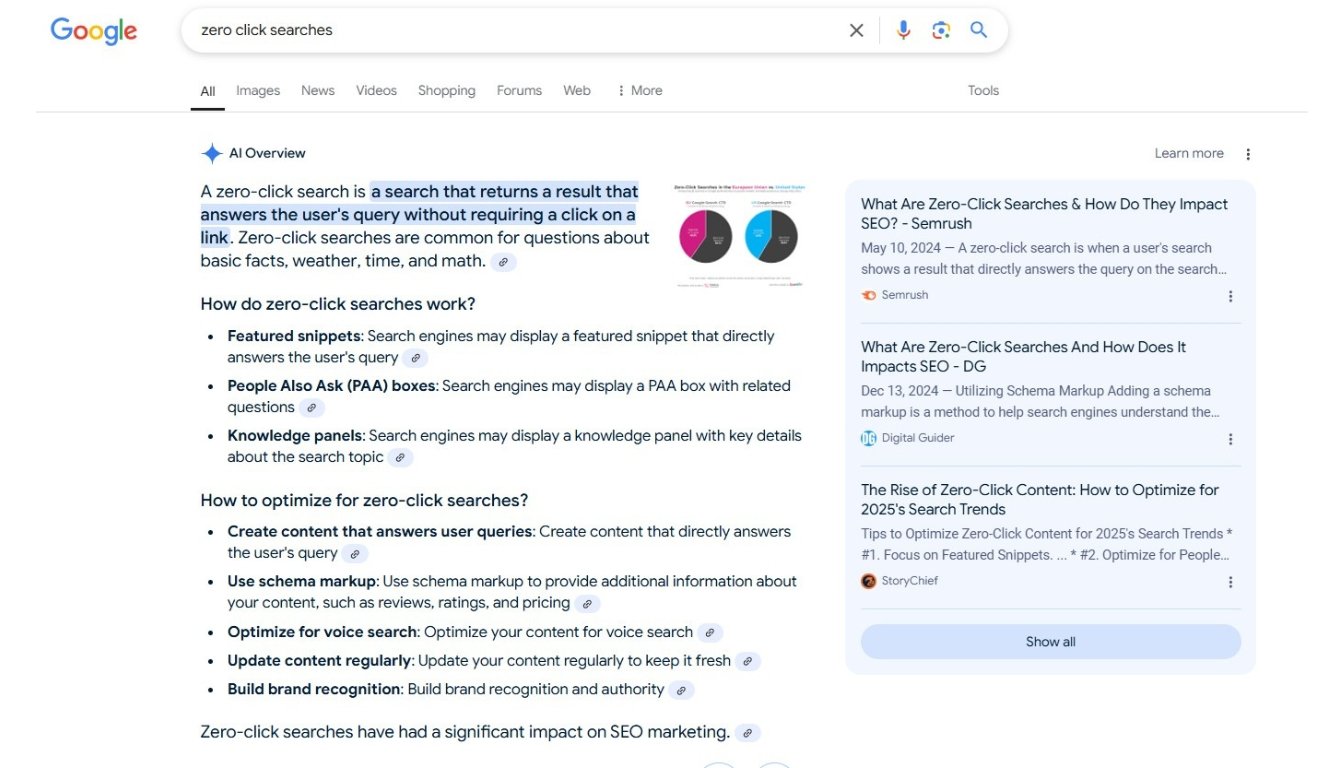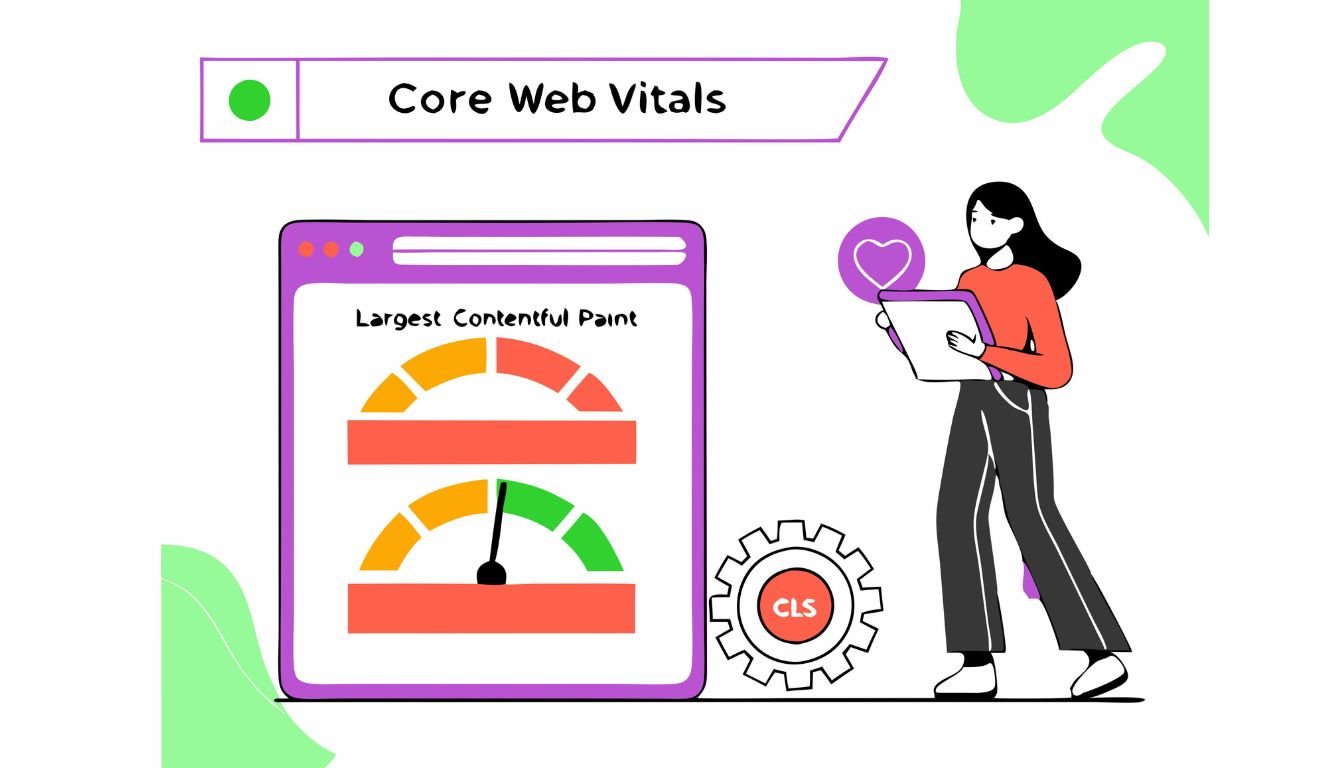Affiliate Disclaimer: Some of the links on this site are 'affiliate links.' This means if you click on the link and purchase the item, we may receive an affiliate commission.
If you’re working in affiliate marketing, you already know the competition’s fierce. Standing out often feels impossible, especially when search results seem dominated by giants. That’s where SEO optimization becomes your not-so-secret weapon for affiliate marketers. SEO optimization done right can bring your content to the forefront, connecting you with the audience that matters most.
Key Takeaways
- Keyword research is the backbone of SEO. Focus on long-tail keywords that match user intent but avoid overstuffing.
- Write clear, helpful, and engaging content that solves problems or answers questions. Google loves value-driven content.
- Use headline tags (H1, H2, H3) to improve readability and structure, making content scannable for users and search engines alike.
- Meta descriptions matter. Keep them compelling and include a target keyword to boost click-through rates.
- Optimize images with descriptive file names and alt text to help with accessibility and rankings. Compress images to improve page load speed.
- Slow websites lose visitors. Prioritize site speed and use reliable hosting to ensure a smooth user experience.
- Mobile-friendly design is a must. Most traffic comes from phones, so your site should be easy to navigate on smaller screens.
- Internal linking keeps users on your site longer while helping search engines crawl and understand your content.
- Backlinks still matter. Build trust by getting quality links from authoritative websites, not spammy ones.
- Regularly update your content to keep it fresh and relevant. Google notices when content feels outdated.
- Study your analytics to understand what’s working. Use insights to adjust your strategy and keep improving.
What’s exciting is how SEO isn’t just about keywords anymore. With trends like AI-driven search tools and zero-click results reshaping how people find information, adapting your strategy isn’t optional—it’s a game-changer for your revenue stream. Whether you’re just starting or looking to refine your approach, mastering SEO is essential for growing both your traffic and income in 2025 and beyond.
Additionally, integrating SEO optimization into your content strategy may include generating high-quality backlinks, which are vital for enhancing your site’s credibility.
YouTube Video: “SEO for Affiliate Marketing Blogs (5 Steps To Rank on Google”)
Remember that effective SEO optimization is as much about delivering value to your audience as it is about meeting search engine criteria, ensuring your content remains relevant and engaging.
Understanding SEO Optimization
Mastering SEO optimization is like learning the language of search engines, and for affiliate marketers, it’s the key to unlocking untapped traffic and revenue. Whether you’re a newbie or have been at it for a while, understanding the essentials of SEO is what helps you reach your audience and turn visits into clicks, sales, or sign-ups.
SEO optimization also involves enhancing your website’s technical aspects to improve load times and user experience, which are crucial for retaining visitors and boosting rankings.
What is SEO Optimization?
SEO stands for “Search Engine Optimization,” and at its core, it’s all about making your website or content more visible on search engine results pages (SERPs). When done right, SEO optimization ensures that your audience finds you when they’re searching for answers or products related to your niche. Think of SEO as a bridge that connects your content with people who need it.
So, why does it matter? The better your SEO, the higher your chances of ranking on Google or Bing—this means more traffic heading your way. And we’re not just talking about any visitors; we’re talking about relevant users who are ready to engage. Optimizing your site can lead to more traffic, better conversions, and ultimately, higher earnings.
To look closer into the fundamentals, check out this guide from Search Engine Land, which provides a detailed breakdown of how SEO works and why it’s indispensable.
Key Elements of SEO for Affiliate Marketers
Affiliate marketers have specific goals: driving qualified traffic and converting that traffic into affiliate sales. Optimizing for SEO means honing in on the components that matter most. Here are the key players:
- Keywords: The Foundation of SEO
Keywords are the words and phrases your target audience is typing into search engines. As an affiliate marketer, you want to focus on keywords with buyer intent. For example, phrases like “best running shoes under $100” suggest users are ready to purchase. Tools like Google’s Keyword Planner or Ahrefs can help you pinpoint high-traffic, low-competition keywords that fit your niche. - Content Quality: Your No. 1 Priority
Let’s be real: users aren’t sticking around if your content doesn’t deliver. Your posts should be engaging, informative, and solve real problems. If you promote products, include detailed reviews, comparisons, or even hands-on demonstrations. Great content does a lot more than rank—it builds trust, which leads to conversions. - Backlinks: Your Trust Signal
Backlinks are like endorsements from other websites, telling Google that your site is worth paying attention to. The more high-quality backlinks you build, the more authority your site gains. For affiliate blogs, guest posting, creating shareable content, and connecting with influencers can help you earn these valuable links.
So, whether you’re new to the game or a seasoned affiliate marketer, prioritizing SEO optimization is essential for maximizing your traffic and income.
To fully leverage SEO optimization, it’s vital to consistently apply best practices and stay updated with industry trends. Regularly revisiting your strategies ensures your approach to SEO optimization remains effective in driving traffic and conversions.
For a more in-depth look at how to combine SEO with affiliate marketing, check out these practical tips from Mangools.
- Site Structure and Speed
Don’t overlook your website’s user experience. A slow-loading, hard-to-navigate site can deter potential customers faster than you think. Ensure your pages load quickly, your layout is clean, and the path to clicking an affiliate link is seamless. - Search Intent Matching
Not all traffic is useful traffic. If someone’s searching “how to bake a cake,” and you’re offering affiliate links to blenders, it’s a mismatch. Understanding and matching your content to the user’s search intent ensures you’re offering them exactly what they’re looking for—and that’s what converts.
By focusing on these elements, SEO optimization becomes a strategic, no-fluff approach to getting your affiliate content front and center. Want even more strategies? Check out this detailed breakdown from Affise on making your content irresistible to search engines.
With the right application of SEO optimization, affiliate marketers can dramatically increase their visibility and conversions. Understanding the nuances of SEO optimization is essential for success in digital marketing.
Utilizing SEO optimization techniques will help you reach a wider audience and establish your authority in your niche. By focusing on SEO optimization strategies, you can create content that resonates with your target demographic.
Integrate SEO optimization principles into all aspects of your content creation process, from keyword selection to content promotion.
With these tools in your arsenal, you’ve got the power to grow your affiliate site and make it stand out in the crowded digital market. Make that search engine love work for you!
Current SEO Trends in 2025
Finally, embracing comprehensive SEO optimization practices will empower your affiliate marketing efforts, fostering long-term growth and success.

The landscape of SEO in 2025 is evolving faster than ever, driven by advancements in AI, updated algorithms, and changing user behavior. As an affiliate marketer, staying in the loop on these trends isn’t a luxury—it’s a necessity if you want to remain competitive. Let’s Look into some of the standout shifts in search engine optimization that are shaping the way we reach audiences today.
Rise of AI in SEO
Through ongoing evaluation and refinement of your SEO optimization tactics, you can adapt to changing algorithms and user preferences to maintain your competitive edge.

Ultimately, your commitment to effective SEO optimization will dictate your success as an affiliate marketer.
Artificial intelligence is reshaping how we approach both content creation and optimization. AI tools, like ChatGPT and Jasper, are enabling marketers to streamline everything from brainstorming ideas to refining content for search engines. You can now use AI to analyze keyword trends, predict what users want, and even write targeted content—making manual guesswork almost obsolete.
As algorithms evolve, regularly revisiting your SEO optimization strategies will keep you ahead of the competition.
Now is the time to refine your approach and fully embrace the potential of SEO optimization for your affiliate marketing endeavors.
Big names like Google have taken this a step further with their Search Generative Experience (SGE). This feature incorporates AI-generated snippets to provide users with immediate answers, leaving traditional listings to fight for visibility below. What does this mean for you? To stay competitive, your content should aim for structured data and direct query matches, helping it stay AI-friendly yet human-centered. Learn more about harnessing AI for SEO here.
Essentially, mastering SEO optimization is an ongoing journey that can yield substantial rewards for your affiliate marketing success.
Be proactive in your approach to SEO optimization to ensure your affiliate marketing strategies yield the best results.
AI’s potential can’t be ignored, but it’s not a magic wand. While tools help save time, your creativity and originality remain essential for content that resonates with an audience. Focus on problem-solving, storytelling, and value-driven insights—areas where human expertise reigns supreme. For a closer look into this shift, check out how AI is transforming the SEO field.
E-E-A-T and the Importance of Experience
If you’ve been paying attention to Google’s ranking factors, you’ve likely heard of E-E-A-T: Experience, Expertise, Authoritativeness, and Trustworthiness. But in 2025, Google is doubling down on the “Experience” aspect. What qualifies you to discuss your topic? Personal anecdotes, firsthand knowledge, or interactive media? These questions are increasingly shaping rankings.
For instance, if you’re reviewing products as an affiliate, just summarizing specs won’t cut it. Adding details about how you’ve actually used those products or showing their benefits through case studies and videos strengthens your content’s credibility and relevance.
Here’s a tip: Showcase your experience by leaning into multimedia—video demonstrations, authentic images, and even short audio reviews. This kind of content gives your audience, and Google, confidence in what you’re sharing. Users trust creators who sound “real,” and so do search engines.
For more detail on optimizing your content for E-E-A-T, read this guide explaining its evolving role in rankings.
Navigating Zero-Click Searches
Zero-click searches are becoming the norm, especially with features like featured snippets and AI-generated responses dominating the search engine results pages (SERPs). In fact, as of 2025, 15% of SERPs now include AI overviews, and that number is climbing. What’s a zero-click search? It’s when a user gets an answer directly on the search results page, so they never click through to your site.

For affiliate marketers, this sounds like bad news at first—fewer clicks mean fewer conversions, right? Not necessarily! You can still win in this new environment by targeting long-tail keywords and optimizing content for featured snippets. Short, scannable pieces of content, like FAQ sections and “how-to” guides, can help your content appear directly within a zero-click box.
Another way to combat traffic loss is by offering something irresistible beyond the snippet. Think of zero-click searches as a “first impression.” Use headlines or intros that create curiosity while fully answering the query. The goal is to provide value while leaving readers eager for more.
If you’re looking for strategies to thrive amid zero-click searches, this insightful article outlines actionable tips.
Staying ahead of these SEO trends means embracing change and constantly fine-tuning your strategy. Whether it’s leveraging AI, leaning into personal experience, or adjusting for new SERP dynamics, every tweak you make is another step toward better performance in 2025.
Technical SEO for Affiliate Websites
Navigating the technical side of SEO can feel overwhelming, especially when you’re also managing affiliate content and tracking conversions. However, getting the technical aspects right is what makes your website a reliable, fast, and user-friendly destination. Here’s what you need to focus on.

Core Web Vitals and Beyond
You’ve heard it before—speed matters online. Google’s Core Web Vitals, which include Largest Contentful Paint (LCP), First Input Delay (FID), and Cumulative Layout Shift (CLS), are more than just fancy terms. They directly impact how users experience your affiliate website. If your pages load slowly, users might bounce before they even get a chance to see your brilliant product suggestions.
Think about it this way: landing on a slow website is like walking into a store and waiting in line just to enter. Visitors won’t stick around. Improving your site’s metrics means faster loading images, smooth navigation, and eliminating those annoying layout shifts when a page loads. These fixes signal to Google that your site provides value and should rank higher in search results.
To learn more about how Core Web Vitals can make or break your rankings, check out Google’s Core Web Vitals guide.
The Role of Schema Markup
Structured data, like schema markup, is your secret weapon for standing out in crowded search engine results pages (SERPs). Think of schema as a way to give Google a cheat sheet about your content. With the right markup, your site can appear with star ratings, product prices, or even quick FAQ answers directly on the SERP.
For affiliate websites, using schema can mean the difference between blending in or standing out. Imagine someone searching for a product category you promote, like “best espresso machines.” Adding schema markup tells Google to include enhanced results like reviews, pricing, or availability for your affiliate links. Not only does this increase visibility, but it also boosts click-through rates.
Enhance your understanding of structured data by reading this detailed guide on schema markup by SEMrush.
Mobile-First Indexing for Affiliates
Google has shifted gears with mobile-first indexing, meaning it considers your site’s mobile version first when determining rankings. If your affiliate site isn’t mobile-friendly, it’s like trying to sell products in a store with a broken front door.
Here’s a key takeaway: your site should be just as effective on a phone as it is on a desktop. This means responsive design, easy-to-tap links, and concise, scannable content. Most users won’t zoom in to read microscopic text—they’ll just hit the back button.
Test your site regularly on mobile devices and ensure load times stay under three seconds. Mobile-friendly affiliate sites are more likely to capture the attention (and wallets) of users shopping on the go.
Learn the best practices for mobile-first indexing with Google’s own guidelines.
Perfecting technical SEO may feel tedious at times, but these adjustments create a strong foundation for your affiliate site to thrive. By focusing on speed, structure, and mobile usability, you’re making it easier for both people and search engines to choose your content.
Content Strategy for SEO Optimization
A solid content strategy is the backbone of successful SEO optimization, especially for affiliate marketers aiming to boost traffic and conversion. This isn’t about cranking out as much content as possible; it’s about creating targeted, value-packed pieces that resonate with your audience.

Crafting High-Quality Evergreen Content
Evergreen content is your long-term investment in SEO. Think of it as a sturdy tree in your content forest—it stays relevant, provides value year after year, and drives consistent traffic. By focusing on timeless topics within your niche, you ensure your efforts pay off well after publication.
To create evergreen pieces, answer these questions:
- What topics stay relevant over time in your niche?
- Are there questions or problems your audience will likely face forever?
For affiliate marketers, this could involve “how-to” guides, product comparisons, or troubleshooting posts. For example, a guide like “5 Tips for Choosing the Best Travel Insurance in 2025” stays helpful when updated yearly with minor tweaks. Platforms like Ahrefs can help you locate these long-lasting opportunities. For more ideas, check out Ahrefs’ guide to creating an SEO content strategy.
Maintaining your evergreen content is just as critical. Update facts, refresh internal links, and ensure it reflects current trends or search intent. By doing so, you keep users engaged and signal to search engines that your site is active and authoritative.
The Role of FAQ Sections
Adding an FAQ section to your content might seem like a minor detail, but it packs a big punch for both SEO and usability. Why? Because FAQs directly address user intent by offering concise, actionable answers to common queries. This translates into improved reader satisfaction and better rankings.
FAQs also increase your chances of landing in Google’s featured snippets, those quick-answer boxes users see right at the top of Google. Imagine capturing a searcher’s attention without them even clicking on another result—only your content.
Here’s what makes an FAQ effective:
- Clear answers written for humans, not robots.
- Incorporation of relevant keywords naturally.
- Direct responses covering specific questions users are asking.
Let’s say you’re promoting fitness gadgets. Including an FAQ about “How does a fitness tracker improve daily workouts?” can catch searchers’ attention and guide them to your affiliate links. For tips on perfecting FAQ content, check out Why FAQs Are SEO Gold.
Pro tip: Use structured data (schema markup) for your FAQs. This makes them more likely to appear as rich results on Google.
Leveraging Multimedia for Better Engagement
Content involves more than words—it also involves creating an experience. Adding multimedia elements like videos, images, and infographics can significantly enhance your SEO optimization by keeping visitors on your page longer. This engagement sends positive signals to search engines.

Here’s how you can effectively use multimedia:
- Videos: A short product demo or an explainer video builds trust. For instance, showing how a kitchen gadget works could easily convert curious shoppers.
- Infographics: Simplify complex data. If your topic involves statistics or comparisons, infographics make the information digestible—and shareable.
- Images: Authentic, high-quality visuals make your posts look credible. Optimize images by compressing file sizes and using descriptive alt text.
Embedding a YouTube video can also boost your rankings, as video content often garners more engagement. Remember to host it on reliable platforms like YouTube or Vimeo to maximize visibility. For inspiration, check out different ways multimedia enhances content strategy.
By combining useful text with visual tools, you make your content more appealing to readers and search engines alike. It’s the digital equivalent of offering a full-course meal instead of just an appetizer.
With these core strategies, you’re optimizing for search engines and ensuring your audience finds genuine value in your content. Create for people, optimize for search—this balance is what drives real results.
Building Authority with Backlinks
Backlinks are the trust currency of the Internet. Think of them as personal recommendations in the digital world—other sites vouching for the quality and relevance of your content by linking to it. For affiliate marketers, building quality backlinks is crucial for SEO optimization. They not only improve your rankings on search engines like Google but also enhance your website’s authority and credibility. Let’s explore how to earn these valuable links and avoid practices that might harm your efforts.
Strategies for Earning Backlinks in 2025
Earning backlinks in 2025 requires a mix of creativity, consistency, and relationship-building. You don’t want to throw just any links at your site if you’re genuinely trying to build a network of trust and relevance. Here are some actionable strategies:
- High-Quality Content is Still King
Before anything else, ask yourself: Is my content worth linking to? Create detailed, insightful, and unique content that speaks directly to your audience’s needs. Evergreen guides, original research, interactive tools, and shareable infographics are great ways to get noticed. When your content solves problems, people naturally want to reference it. - Strategic Outreach
Building backlinks is 50% legwork. Reach out to websites within your niche. But don’t blindly spam—you need to provide value. For example, pitch a guest post that adds depth to their site or highlight how your content complements theirs. Tools like this backlink strategy guide can help you identify the best outreach methods for your niche. - Collaborations and Networking
Partnerships with influencers, thought leaders, or even other affiliate marketers can open doors. Participate in podcasts, webinars, or collaborative posts where your expertise can shine. Building relationships takes time, but when done right, you create a network willing to link back to your quality insights. - Expand Your Portfolio with Unique Content
Content formats influence linkability. Skyscraper content—long, comprehensive pieces that build on existing high-performing content—frequently earns backlinks because of its depth. You can explore more about effective options for earning backlinks using guides like this one. - Leverage Visual Content
Infographics, charts, and data visuals are click magnets and backlink gold. Not everyone has time for in depth analysis of data, but a well-designed infographic gets shared widely, often with credit back to your site.
The core idea? Value breeds links. People share what helps them, makes them look good, or connects with their audience. Stay consistent with these strategies, and your backlink profile will naturally strengthen. For additional tested techniques, explore this link-building guide.
Avoiding Black Hat Techniques
Let’s face it: shortcuts are tempting. But in the world of SEO, black hat techniques can backfire spectacularly. Google’s algorithms are smarter than ever in 2025, and unethical practices could tank your rankings and get your site penalized.
Here’s a breakdown of what to avoid:
- Buying Links
Paid links might seem like a quick ticket to success, but they’re risky. Google specifically penalizes sites that engage in link-buying schemes, and the consequences can be brutal—sometimes leading to complete deindexing of your content. - Private Blog Networks (PBNs)
PBNs are a collection of websites created solely for the purpose of generating backlinks. While it might have worked in the past, this approach is now one of the fastest ways to destroy your credibility with search engines. Learn more about why PBNs are dangerous in this guide. - Keyword Stuffing in Anchor Text
Don’t try to trick algorithms by stuffing exact-match keywords into backlinks endlessly. It feels unnatural to readers and raises red flags for search engines. A balanced anchor text strategy that blends branded and generic anchors is far more effective. - Link Farms and Spam Comments
Link farms—websites dedicated to building unnatural links—or dumping meaningless comments on blog posts are outdated, ineffective, and harmful. Focus on genuine engagement with content that adds value, not shortcuts that degrade your brand. - Cloaking and Hidden Text
Cloaking refers to showing one version of a webpage to users while showing another to search engines. Similarly, hidden text filled with backlinks or keywords may have slipped under the radar a decade ago but now leads to severe penalties. For deeper insight into what to avoid, check out this Shopify guide.
The takeaway? Stick to white hat strategies that build your reputation over time. Think of your site’s credibility like a long-term relationship; shortcuts might initially seem appealing, but they often end in disaster. By focusing on quality and authenticity, you pave the way for lasting growth and rankings that truly stick.
Measuring SEO Success for Affiliate Marketers Sites
When you’re getting started with affiliate marketing, knowing whether your SEO strategy is hitting the mark can feel like navigating a maze without a map. It involves more than simply ranking higher in search results. You want to drive meaningful traffic that leads to conversions and ultimately boost your earnings. Here are some practical ways you can measure your SEO success effectively.

Key Performance Indicators (KPIs) to Track
Tracking the right KPIs helps you stay focused on what truly matters: results. But how do you decide which metrics matter the most? Here are a few essentials tailor-made for affiliate marketers:
- Organic Traffic
This is the bread and butter for any SEO strategy. Organic traffic shows how many users are coming to your site via unpaid search results. Tools like Google Analytics make it easy to monitor traffic trends and identify top-performing pages. Want to refine it even further? Focus on high-intent traffic—users more likely to convert. - Click-Through Rate (CTR)
CTR tells you how often users click when they see your site on a search engine results page (SERP). A high CTR suggests your title tags and meta descriptions are doing their job. If the clicks aren’t rolling in, ask yourself: Is your headline compelling or specific enough? Your target audience needs a reason to “bite.” - Conversion Rates
At the end of the day, visitors clicking on your affiliate links or making purchases is what counts. Tracking conversions doesn’t just measure how many people visit your site but how effectively your content drives them to take action. Tools like MonsterInsights can help connect Google Analytics to your affiliate campaigns, keeping everything in focus. - Bounce Rate
If visitors land on your affiliate page and leave without exploring further, it’s a red flag. A high bounce rate might mean you’re bringing in the wrong audience—or your page doesn’t deliver what users expect. Pinpoint the problem so you can tweak your content or site design accordingly. - Backlink Growth
Backlinks are like upvotes for your content in the SEO world. Tracking how many quality backlinks you earn over time shows how authoritative your site has become. Steady growth in this area is an excellent benchmark for long-term success.
To learn even more about understanding KPIs tailored for affiliate marketers, check out this guide by Alliance Virtual Offices.
Using SEO Tools Effectively
SEO tools are your trusty sidekicks. The right ones can save you time, deliver insights, and help you stay competitive in the fast-paced affiliate marketing world. Here’s a curated list of must-haves and what they’re good at:
- Ahrefs & SEMrush
These platforms are powerhouses for keyword research and backlink analysis. They give you in-depth insights and help you uncover opportunities to expand your affiliate reach. For affiliate marketers targeting smaller niches, tools like these are investment-worthy. Get the full rundown on other tools in this Mangools blog. - Yoast SEO
If your site runs on WordPress, Yoast SEO becomes your best friend. It’s a plugin that ensures your on-page optimization is polished—think meta tags, keywords, and more. - Google Search Console
This free tool provides feedback straight from the source—Google itself. Use it to monitor your site’s performance in the SERPs, fix issues, and discover what queries bring in the clicks. - Grammarly & Duplichecker
These tools polish your words, improve readability, and ensure your content is unique. Remember, duplicate content is an SEO death sentence, so triple-check before you hit “publish.”
Interested in expanding your arsenal? Here’s a handy breakdown of affiliate-friendly tools by SEMrush.
By pairing clear KPI tracking with the right tools, you’ll always know how your SEO optimization efforts are performing. Think of it like maintaining a garden—you measure success not by counting every leaf but by ensuring each plant flourishes as part of a thriving ecosystem. Keep nurturing, and you’ll grow something profitable.
Affiliate SEO FAQ: Answers to Boost Your Traffic and Earnings
What is SEO for affiliate marketing, and why does it matter?
SEO for affiliate marketing is about optimizing your site so it ranks higher on search engines like Google. This ranking helps drive organic traffic, which means more people landing on your site without needing to pay for ads. For affiliate marketers, this often translates to higher clicks on your links, more commissions, and consistent, long-term traffic.
How do I pick the right keywords for my affiliate site?
Start with tools like KWFinder or Google Keyword Planner. Look for keywords with decent search volume and low to medium difficulty. Focus on a mix of short-tail keywords (general terms) and long-tail ones (more specific phrases) that match user intent—whether it’s informational, transactional, or commercial.
How can I create content that ranks well and converts?
Write content that’s genuinely useful for your audience. Think lists, reviews, comparisons, and how-tos targeting your chosen keywords. Keep it original and avoid overloading your post with affiliate links or obvious sales language. Make your content easy to read—use headings, bullet points, and images to break things up.
Should I worry about AI-generated content for SEO?
You can use AI to assist with research or ideas, but avoid relying on AI to churn out entire blog posts. AI content often lacks the nuance and originality Google values. Instead, focus on creating high-quality, user-first content that adds real value.
Do backlinks really matter for affiliate SEO?
Absolutely. Backlinks from reputable, relevant sites signal to Google that your site is trustworthy. Build links by guest posting, collaborating with other creators, or creating link-worthy resources. Stay clear of low-quality, spammy backlink schemes—they’ll hurt more than help.
How important are technical SEO fixes?
Very. If search engines can’t crawl or index your site effectively, you won’t rank well. Pay attention to speed, mobile responsiveness, URL structure, and avoiding things like broken links. Tools like Screaming Frog can help you spot and fix technical issues.
What are the best affiliate niches for SEO in 2025?
Successful niches combine high demand with low competition. Areas like finance, tech, beauty, travel, education, and online tools are often lucrative. But your existing expertise or interest matters too—it’s easier to create good content if you know the space.
How often should I update or audit old content?
Review top-performing posts every 6-12 months to keep them relevant. Update outdated stats, refresh images, and double-check links to make sure your recommendations still hold up. Regular audits keep your content competitive.
Is mobile optimization still necessary for SEO?
Yes, more than ever. A huge chunk of your users accesses your site on mobile devices. If it’s hard to read, navigate, or loads slowly, you’ll lose rankings and visitors. Use responsive designs and test your site on multiple devices.
How do I track SEO progress for my affiliate site?
Set up Google Search Console and Google Analytics 4. Monitor keyword rankings, traffic sources, and conversions. Tools like SERPWatcher give detailed insights into how your SEO efforts are paying off.
Should I combine SEO with paid traffic for affiliate marketing?
It depends on your budget and goals. Paid ads can give instant visibility but can also become expensive. SEO provides sustainable traffic over time without ongoing costs. Many marketers use both, kicking off campaigns with paid ads while they build organic traffic.
What’s EEAT, and how does it relate to affiliate SEO?
EEAT stands for Expertise, Experience, Authority, and Trustworthiness—Google’s standard for quality content. Affiliate sites with clear expertise, credible sources, and honest recommendations are more likely to rank. Always disclose affiliate links to stay transparent and trustworthy.
What mistakes should I avoid in affiliate SEO?
Common pitfalls include keyword stuffing, ignoring technical SEO, overloading pages with ads or affiliate links, and thin content with no real value. Also, avoid trying to trick Google with black-hat techniques—it almost always backfires.
How do I optimize for voice search as an affiliate marketer?
Focus on conversational, question-based phrases for your content. Think “best laptops under $500” or “how to fix a leaking faucet.” Also, aim to land featured snippets by directly answering common questions in your niche.
Can I rely only on SEO to generate affiliate income?
While some do, it’s not the best strategy. Diversify your traffic sources—think email marketing, social media, and even YouTube to complement your SEO efforts. This way, algorithm updates won’t cripple your entire operation.
Final Thoughts
SEO optimization is more than just ranking higher—it’s about connecting with your audience in a way that builds trust and drives meaningful results. For affiliate marketers, this means keeping your strategy adaptable and always informed by trends like AI in search, zero-click results, and an emphasis on E-E-A-T. The key is staying proactive, continually optimizing your content, and prioritizing user experience over quick fixes.
Treat SEO like an ongoing investment in your success. Focus on creating valuable, engaging content, and be ready to evolve as search algorithms and user behaviors change. Keep experimenting, measuring what works, and refining your approach to stay ahead.
As you move forward, remember: SEO isn’t only about traffic—it’s about capturing the right traffic. Now’s the time to take action, refine your strategy, and build a foundation that supports long-term growth.

